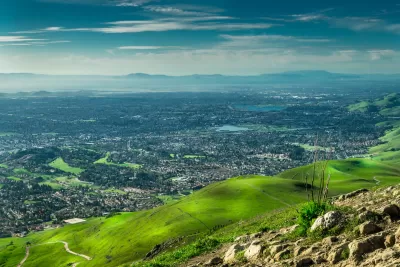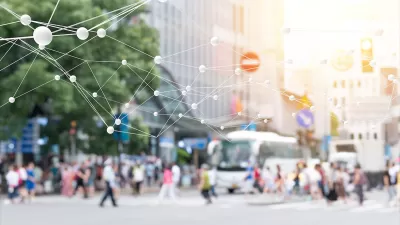Like other technologies, artificial intelligence tech seems to be clustering in a small group of cities, prompting questions about its uneven deployment.

Artificial intelligence, writes Richard Florida, "is predicted to have substantial economic impacts, adding as much as $15.7 trillion to global economic output by 2030." According to "a new Brookings Metro study that digs into the geography of AI at the metro level," AI "threatens to reinforce or magnify the same geographically uneven patterns of previous high-technology industries that are concentrated in leading tech hubs and superstar cities across the U.S."
The study finds that "just 10% of U.S. metropolitan areas — 36 of them — have a significant AI presence." The San Francisco Bay Area is "far and away the lone U.S. leader in AI." Thirteen other metro areas have "significant AI clusters, which the study calls early adopters." The study names "21 additional metro areas that have substantial research capability but limited commercialization," and a fourth group comprised of "87 metro areas that the study dubs 'potential adoption centers' with more moderate levels of AI activity." Beyond that, "the study finds very little, if any, significant AI capability in the lion’s share of U.S. metro areas, a staggering 260 of them in all."
In a hopeful sign, "[s]everal metro areas saw significant increases in AI-related job postings in 2020, while the Bay Area saw a slight decline. It may well be the case that geographic shifts in AI technology, jobs or startups may not show up in data for several years." But for now, AI's growth mirrors that of other technologies, where "new technologies and industries grow up around a small number of dominant tech hubs."
According to Florida, "[f]ederal intervention will likely be required to counter and reshape the powerful trends at work in the geography of artificial intelligence." Otherwise, "[l]eft to its own devices, AI is just the latest technology that will serve to reinforce and exacerbate the winner-take-all nature of our economy and geography."
FULL STORY: What the AI Economy Means for Cities

Maui's Vacation Rental Debate Turns Ugly
Verbal attacks, misinformation campaigns and fistfights plague a high-stakes debate to convert thousands of vacation rentals into long-term housing.

Planetizen Federal Action Tracker
A weekly monitor of how Trump’s orders and actions are impacting planners and planning in America.

Chicago’s Ghost Rails
Just beneath the surface of the modern city lie the remnants of its expansive early 20th-century streetcar system.

Bend, Oregon Zoning Reforms Prioritize Small-Scale Housing
The city altered its zoning code to allow multi-family housing and eliminated parking mandates citywide.

Amtrak Cutting Jobs, Funding to High-Speed Rail
The agency plans to cut 10 percent of its workforce and has confirmed it will not fund new high-speed rail projects.

LA Denies Basic Services to Unhoused Residents
The city has repeatedly failed to respond to requests for trash pickup at encampment sites, and eliminated a program that provided mobile showers and toilets.
Urban Design for Planners 1: Software Tools
This six-course series explores essential urban design concepts using open source software and equips planners with the tools they need to participate fully in the urban design process.
Planning for Universal Design
Learn the tools for implementing Universal Design in planning regulations.
planning NEXT
Appalachian Highlands Housing Partners
Mpact (founded as Rail~Volution)
City of Camden Redevelopment Agency
City of Astoria
City of Portland
City of Laramie





























